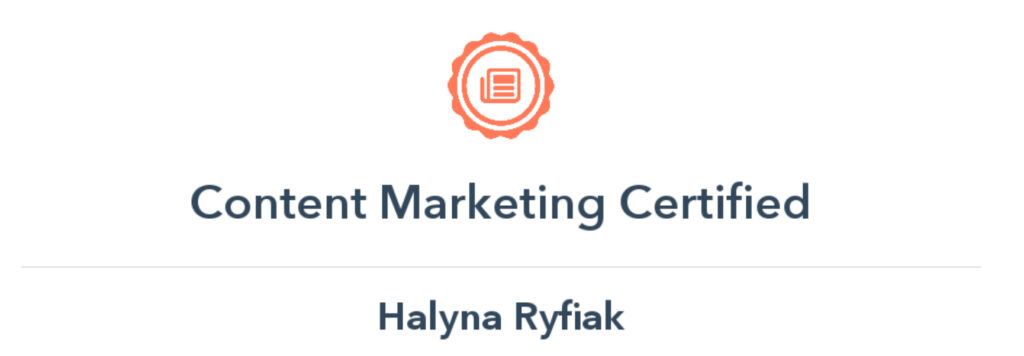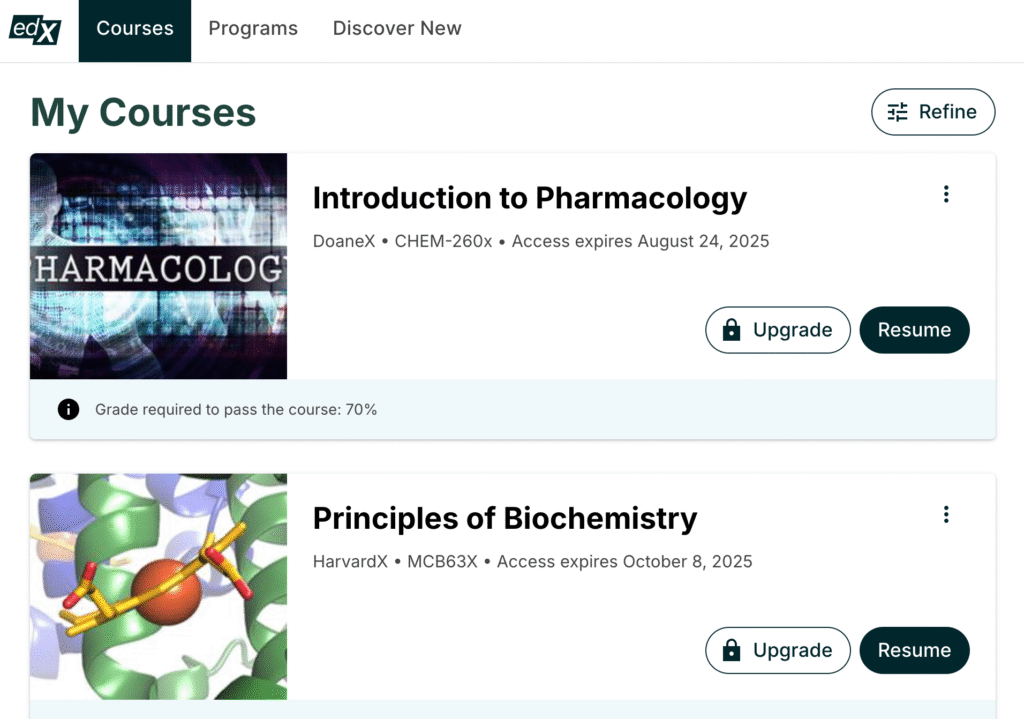At the moment of typing this, I have turned 36. I have a BA in Library Studies and an MA in Business Intelligence from a Ukrainian university (i.e. useless), and a Hubspot certificate in Content Marketing. If I had the money, I would’ve also had a few Coursera certificates to boast of, but I only ever did the auditing path.
Ever since graduating in 2013, I couldn’t help but feel that my education wasn’t enough. Partly, it’s due to having studied at a Ukrainian university and having to deal with corruption and indifference from my professors. I’ve seen many of my fellow students pursue a second Master’s — something that I’ve always wanted to do, but never had the money to actually do it.
Why is it worth continuing your education even after graduating
Now that I’m a little older, I can get a better look at what’s available for me in terms of continued education. And what’s even more valuable — I’m no longer chasing against the time. I don’t set a goal to get a second Master’s before I turn 25, 30, or 35. And that is a great relief.
It’s never too late to get an education. It can come in many forms, and each of them is valid in its own way.
Professional certification
There’s a lot to choose from, both free and paid programs. Especially in the IT crowd, everyone and their dog is acquiring some kind of a professional certification. Every time I’m on LinkedIn, I see someone sharing their AWS or Google certificates — there really is so much to learn and it looks great on your CV. Personally, at my old corporate job I was added to the company Hubspot profile and browsed their courses any time I could. Then, I figured out that I’m not really benefiting too much from my day job and I was pretty much ready to quit on the spot the moment they’d give me a reason.

So, I thought, at the very least I can use the access to Hubspot academy and complete a course which was the most relevant to me at the time — Content Marketing. I’m glad that I did because it made leaving the job feel a bit less bittersweet. I got at least something out of it and not just wasted five years of my time working in an industry that I couldn’t stand and writing about topics that went against my personal morals *cough* online gambling *cough*.
Going back to university
I’ve been thinking about going back to school pretty much ever since graduation. I was really that disappointed in my first uni experience. One thing that held me from going for another round was that, no matter what major or uni I choose, there’s still going to be corruption and the post-soviet mindset of the professors and fellow students that keeps you from actually learning anything. Another important argument is that, even though we’ve been told a million times that our education follows the Bologna process, our diplomas are pretty much worthless outside of the country. I had my eyes on one seemingly decent university that looked like it was “different” but… it was catholic and they made you go to church as part of the learning process. No, thanks. Now, I think that if I were to go back to school, I’d choose something abroad. Which brings us to the next topic.
Study abroad
For the longest time, I’ve regretted never having this opportunity when I was in my teens. Now, when I really think about it, I can have a more mature approach to it and pursue this path without wasting a ton of money on a random major because I “don’t know what I want to be when I grow up”.
One thing that you need to consider when pursuing Chevening funding is that after graduation, you can’t live or work in the UK for two years. You are expected to go back home and use your newly gained knowledge to be a thought leader in your country of origin. This is actually the entire objective of the program. I think it works best if you already have a set career track in your home country. If you don’t want to be limited in your options or maybe plan to emigrate in the foreseeable future, you might want to look for something else.
Online courses
An abundance of online courses is available for free, and for a small fee, you can even get certified or gain credits for your formal education.

Here are just a few e-learning websites you might want to consider:
- Coursera. I’ve spent a lot of time browsing courses over on Coursera and even completed a few, such as the linguistic course from the University of Leiden and one on the language of Hollywood. It used to be easier when they had free certificates for course completion, but now, if you want proof that you have passed the course, there’s a small fee. I don’t even mind this small change, but I am a bit cross that I’ve lost the certifications I acquired before they introduced it.
- edX. I’m currently listening to a few courses over on edX. An introductory course to Italian, and something from the Life Science category. The Italian course has some very interesting printables available for download.
- Futurelearn. I’ve started a few courses there but never really completed anything. I’d like to look into it further. I’ve also heard study YouTubers use this platform, so there’s bound to be something interesting to explore.
- Udemy. Some courses you’ll have to pay for and I can’t tell if it’s gonna be worth it. I’ve only ever checked out the free ones. You have to make sure that the course you’re subscribing to isn’t completely outdated. But something general knowledge should be fine.
- Lingohut – I’ve only just learned about it from TikTok, and I’ve immediately added it to my list of resources for learning Italian.
- Pre-recorded university lectures on YouTube. This is one of my favourite ways of learning. It’s very easy to have it on in the background and re-watch as many times as you like. I much prefer this format to having to click to the next part of the lecture every 3-4 minutes, like it’s arranged on the Coursera website, etc. Years ago, I watched the writing course by Brandon Sanderson on his “Writing with Dragons” channel, and it was fantastic! I believe he has posted the new recording of the course quite recently, so I should probably watch it again to see if there’s any new information to absorb.
Short-term language courses in a country of your choice
This is something I have yet to experience. Still, if you have ever followed any “American abroad” type of vlogs, you know that it’s a common way to stay in a country you’re interested in for longer than your two-week vacation. You not only get to attend actual lessons, but also immerse yourself in the culture. A frequent advice I’ve seen for people using travel as a way to work on their language skills is to stay away from touristy areas. If it’s meant to be a tourist attraction, the service workers are more likely to speak English, and they’ll quickly switch to it once they see that you are a foreigner.
Just read the books!
That’s another idea I have for my personal journey in pursuit of knowledge. And it makes perfect sense in the context of my post-Soviet experience. My professors would usually just dictate to us from their personal notes or from a textbook authored by them, and in essence, a published version of re: notes. In my five years at a Ukrainian university, I only had one assistant teacher who encouraged discussions, and very few professors who actually cared about us understanding the material instead of just memorizing it.
For as long as you life, it’s not too late to learn something new
In conclusion, I believe that education is something that you can never really stop pursuing. There’s always some new technology emerging. Scientific discoveries expand our horizons every single year. And even if you’re not chasing the latest trends, you can always decide to change up your career trajectory, go into a completely new direction, and discover a new passion.
What do you think? Share in the comments!

Leave a Reply